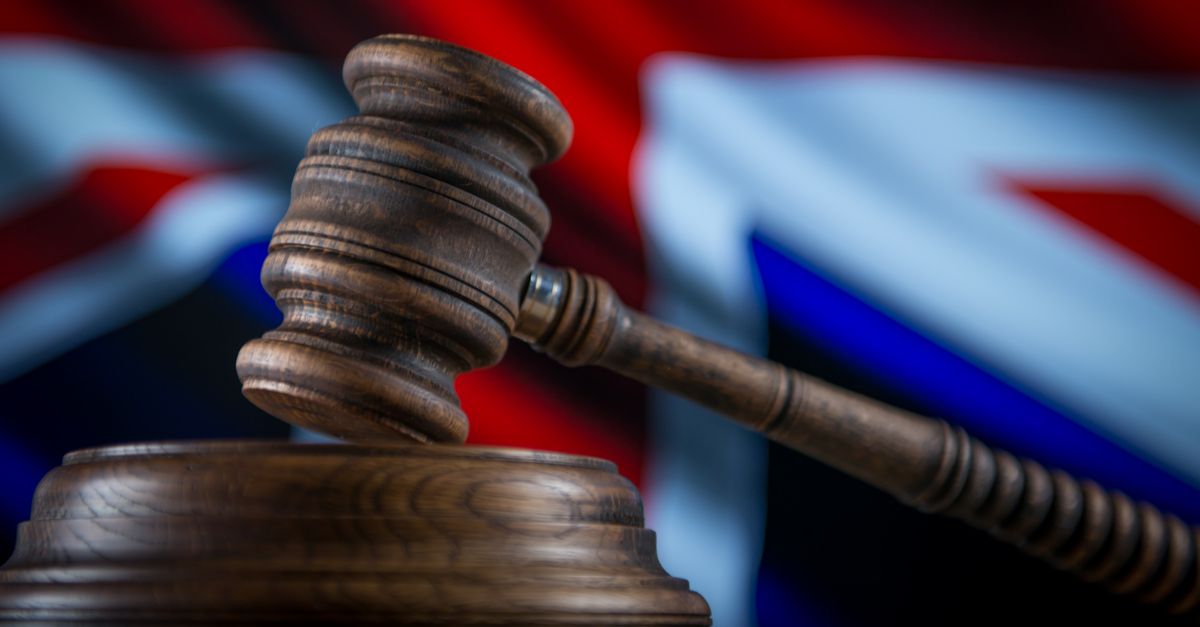A high-profile legal battle by the parents of 10-month-old Charlie Gard appears to have come to an end. On 27 June, a European Court refused to intervene in the case, which saw the High Court of England and Wales rule that the infant — who suffers from an extremely rare mitochondrial disease — should be taken off life support and die in hospital.
According to Great Ormond Street Hospital in London, where Gard is a patient, the boy suffers from infantile-onset encephalomyopathic mitochondrial DNA depletion syndrome (also known as MDDS). He has severe brain damage and progressive muscular weakness, and cannot move or breathe unaided. He cannot hear or see, and is unlikely to be able to develop either ability.
As a result, doctors at Great Ormond Street believe it is in his own best interest to receive palliative care, rather than keep him on life support and in March 2017, they applied to the High Court of England and Wales for permission to withdraw life support.
At present, there is no established effective cure for MDDS, and doctors at the hospital therefore regard the condition as terminal. However, Charlie's parents, Chris Gard and Connie Yates from Bedfont, West London, have raised $1.7 million (£1.3 million) for experimental nucleoside treatment in the United States.
The treatment has never been tried before on humans, and the American doctor who expressed a willingness to treat Charlie told the High Court "...It is very unlikely that he will improve with that therapy."
In April 2017, the High Court ruled that it was in Charlie's best interest for life support to be ended. Having heard expert testimony from several witnesses, Justice Nicholas Francis wrote in his judgement:
The prospect of the nucleoside treatment having any benefit is as close to zero as makes no difference. In other words, as I have already said, it is futile.
Justice Francis concluded:
As the Judge whose sad duty it is to have to make this decision, I know that this is the darkest day for Charlie's parents who have done everything that they possibly can for him and my heart goes out to them as I know does the heart of every person who has listened to this tragic case during the course of the past week or so. I can only hope that in time they will come to accept that the only course now in Charlie's best interests is to let him slip away peacefully and not put him through more pain and suffering.
Charlie's parents appealed the ruling unsuccessfully several times — first with the Court of Appeals of England and Wales, then with the United Kingdom Supreme Court. Finally, the couple took the case to the European Court of Human Rights, arguing (among other points) that Charlie's right to life was being violated.
However, the court in Strasbourg, France, ultimately ruled that the imperative to act in Charlie's best interests and not prolong his suffering outweighed the vanishingly small likelihood of successful treatment. On 27 June, Charlie's parents' application was ruled inadmissible and rejected.
In a 29 June 2017 video message, Charlie's mother, Connie Yates, claimed that the couple had expressed a longstanding wish to bring him home to die in the event that he was denied treatment, but that Great Ormond Street Hospital would not allow them to do so. She said the infant was likely to be taken off life support and die in the hospital the following day.
We've been talking with Great Ormond Street since November last year - when they first started talking about court - about what palliative care meant, and we had three options: one option was to let Charlie go in hospital; the other option was to let Charlie go to a hospice; and the third option was to let Charlie go home to die.
So we chose to take Charlie home to die and we have said this for months, that that is what we want. That is our last wish, if it went this way, the way it's gone. And we promised our little boy, every single day, that we would take him home, because that is a promise we thought we could keep.
Chris Gard, Charlie's father, added that after the European Court of Human Rights decision, the couple reiterated to the hospital their wish to bring Charlie home to die or to take him to a hospice if that was not possible. Both preferences were rejected by the hospital, according to Gard.
They said no to both. He has to die in that hospital tomorrow [30 June 2017].
The boy's parents also claimed that the hospital refused their request to delay removing life support until members of their extended family can pay a final visit to Charlie. Connie Yates claimed: "We've literally begged them today to give us this weekend."
Chris Gard added:
Some of our family and friends can't come. They can't come before tomorrow. So the last time they saw Charlie will be the last time they ever see him.
When we contacted Great Ormond Street Hospital for a response to these allegations, a spokesperson said in a statement:
Together with Charlie’s parents we are putting plans in place for his care, and to give them more time together as a family.
According to the BBC, Connie Yates previously stated that if she and her partner were not allowed to take Charlie to the U.S. for the experimental treatment, they would put the money donated to them by members of the public toward helping other children with mitochondrial disease.
"If Charlie doesn't get this chance, we will make sure that other innocent babies and children will be saved," she reportedly said in a GoFundMe post that has since been deleted.
